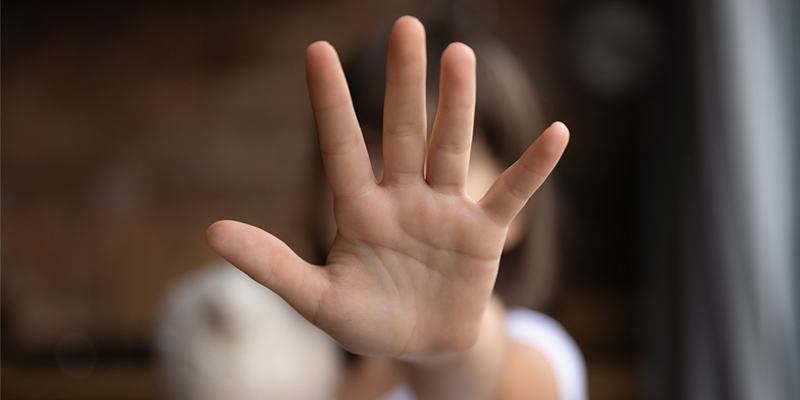New online qualification supports frontline workers responding to child abuse
By Candy Gibson
 UNISA ONLINE
UNISA ONLINEAlarming rates of child abuse and particularly sexual abuse in Australia have prompted the country’s first tertiary accredited postgraduate qualification for frontline practitioners.
The part-time 100% online qualification, designed by UniSA and their child protection experts, will help sector workers to recognise the signs of abuse, understand the impacts and develop evidence-informed and tailored responses.
Public enrolments for the UniSA Online Graduate Certificate in Childhood Trauma are now open nationally.
The online qualification has been developed in the wake of the Royal Commission into Institutional Responses to Child Sexual Abuse, which recommended more training and workforce capacity building for foster carers and relatives, residential care staff and child protection workers.
UniSA-based Australian Centre for Child Protection (ACCP) Deputy Director of Practice, Amanda Paton, says the graduate certificate will help train social workers, doctors, nurses and other practitioners to recognise the signs of child abuse, which can sometimes be missed, or wrongly attributed to other health conditions.
“Child sexual abuse and the trauma that accompanies it is easy to miss if you don’t know the signs,” Paton says.
“It often gets misdiagnosed as autism or developmental disorders because most people working in the sector have not received adequate training.”
Paton says that social workers and psychologists often graduate from university without any understanding of child sexual abuse or signs of trauma related to abuse.
Also, people working in the sector in remote and regional areas, including First Nations people and those without tertiary qualifications – albeit with a lot of experience – are disadvantaged because existing courses are too expensive, confined to cities, restricted to those with previous university degrees, and only offered face-to-face.
“It’s unreasonable to expect people to leave their jobs for an extended time to undertake training, particularly in the child protection sector which is already overworked, overwhelmed, and has a high burnout rate.
“We believe this 100% online qualification, which integrates case examples, clinical expertise and valuable sessions to explore and embed understanding, will equip professionals with the additional skills to help identify and treat child abuse, including sexual abuse.
“With nearly one in four individuals across the nation reporting an experience of child sexual abuse, enhanced workforce support in this area is critical,” Paton says.
State governments in SA and WA have already sponsored 40 practitioners to complete the online qualification and national enrolments for 2024 opened in September.
In 2020, the ACCP launched three micro-credentialled professional certificates to support non-specialist professionals working with children and young people impacted by abuse and neglect. The online courses ranged in length from 30 hours to 12 weeks.
“The overwhelmingly positive feedback has demonstrated the need for further online training tailored to meet the needs of Australia’s frontline workers engaging with children,” Paton says.
UniSA Online Executive Director, Associate Professor Barbara Parker, says the new qualification will help to address the Royal Commission’s recommendations.
“We’re pleased to launch Australia’s first postgraduate qualification in this specialised area. Child abuse is a major public health issue, and we know that more qualified workers and increased workforce capacity are needed to improve the lives of vulnerable children,” Assoc Prof Parker says.
“The Graduate Certificate in Childhood Trauma is designed and taught by UniSA experts and incorporates our world-leading research into the prevention of child abuse, providing a holistic approach to caring for those who have been affected by child abuse and neglect.
“By undertaking a 100% online qualification, the geographical barrier to study is removed. Students can learn from wherever they’re based, and for those already in the sector, apply what they’re learning directly to their day-to-day work.”
More information about the graduate certificate, including how to apply, can be found on the UniSA Online website.
Other Stories
- Tiny nanocarriers could prove the magic bullet for acne sufferers
- Stop the digital criminals with basic cyber hygiene practices
- $40m aged care, health and education hub opens in Adelaide’s northern suburbs
- Should I be getting my vitamin D levels checked?
- From the Vice Chancellor: A rising star
- Achievements and Announcements
- New online qualification supports frontline workers responding to child abuse
- Aboriginal Knowledges Centre takes shape under new UniSA RAP
- Celebrations for new graduates and Hon Doc for popular South Australian leader
- In Pictures: Spring graduations ceremonies
- The latest books from UniSA researchers




